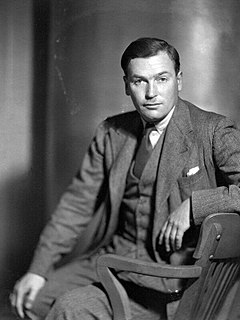A Quote by Richard Aldington
I began to write what I called 'rhythms' ie unrhymed pieces with no formal metrical scheme where the rhythm was created by a kind if inner chant... Later I was told I was writing 'free verse' or Vers libre.
Related Quotes
I know that one of the things that I really did to push myself was to write more formal poems, so I could feel like I was more of a master of language than I had been before. That was challenging and gratifying in so many ways. Then with these new poems, I've gone back to free verse, because it would be easy to paint myself into a corner with form. I saw myself becoming more opaque with the formal poems than I wanted to be. It took me a long time to work back into free verse again. That was a challenge in itself. You're always having to push yourself.
To later Romans Ennius was the personification of the spirit of early Rome; by them he was called "The Father of Roman Poetry." We must remember how truly Greek he was in his point of view. He set the example for later Latin poetry by writing the first epic of Rome in Greek hexameter verses instead of in the old Saturnian verse. He made popular the doctrines of Euhemerus, and he was in general a champion of free thought and rationalism.
Although the assembly of the shots is responsible for the structure of the film, it does not, as is generally assumed, create its rhythm; the distinct time running through the shots makes the rhythm of the picture, and the rhythm is determined not by the length of edited pieces, but by the pressure of the time that runs through them. The pieces that 'won't edit', that can't be properly joined, are those which record a radically different kind of time
Rhythms, beats, etc., are fundamentally central to my creative drive: my first instrument was the drums, nearly every band I have been involved in or at the helm of, is driven by rhythm, my band is driven entirely by rhythm, machine rhythm, and the purpose of the rock instrumentation is literally to speak the beats, to emulate the rhythms with guitars and bass, with very little articulation, and without being 'progressive'.
Thoughts are created in the act of writing. [It is a myth that] you must have something to say in order to write. Reality: You often need to write in order to have anything to say. Thought comes with writing, and writing may never come if it is postponed until we are satisfied that we have something to say...The assertion of write first, see what you had to say later applies to all manifestations of written language, to letters...as well as to diaries and journals





































